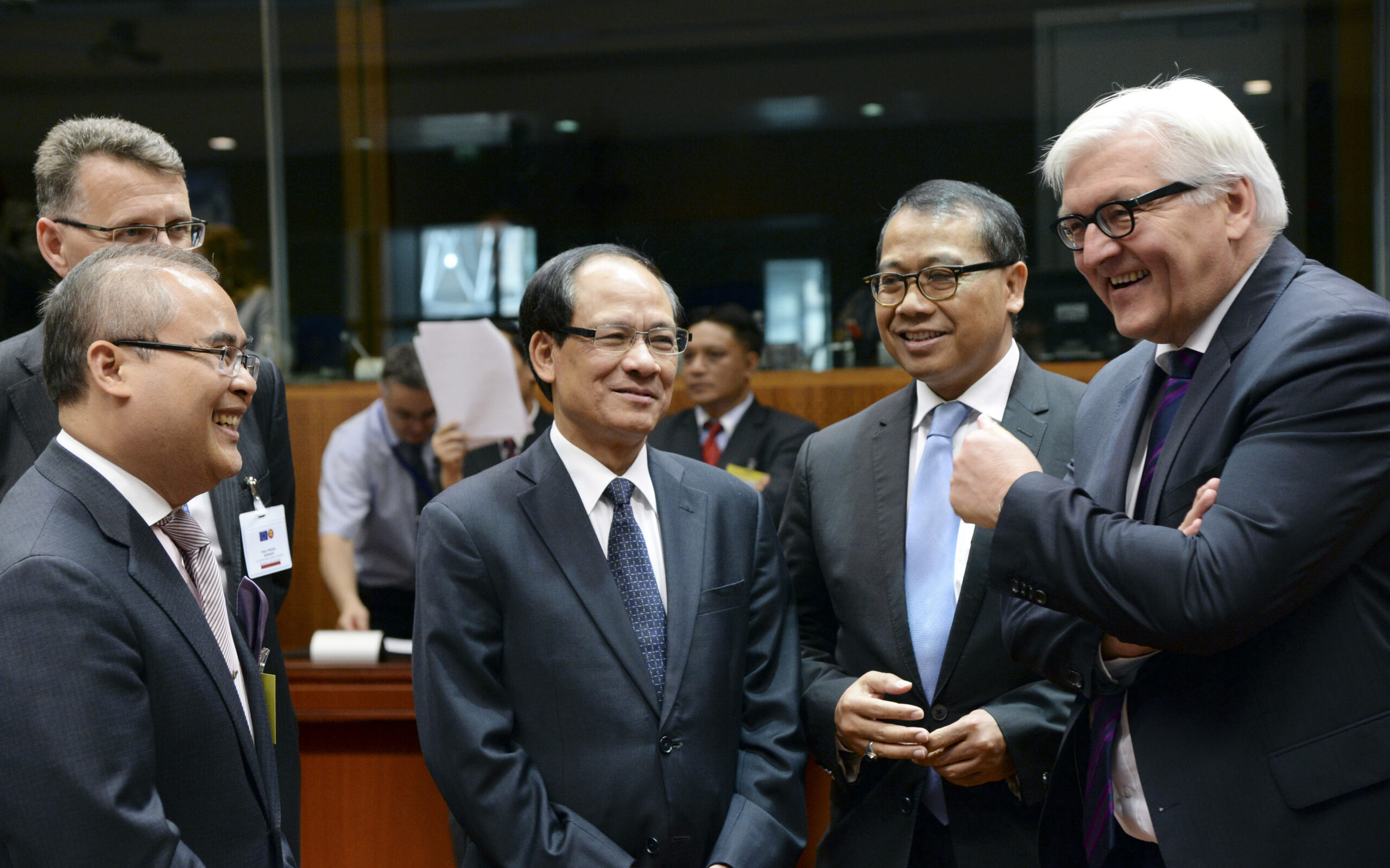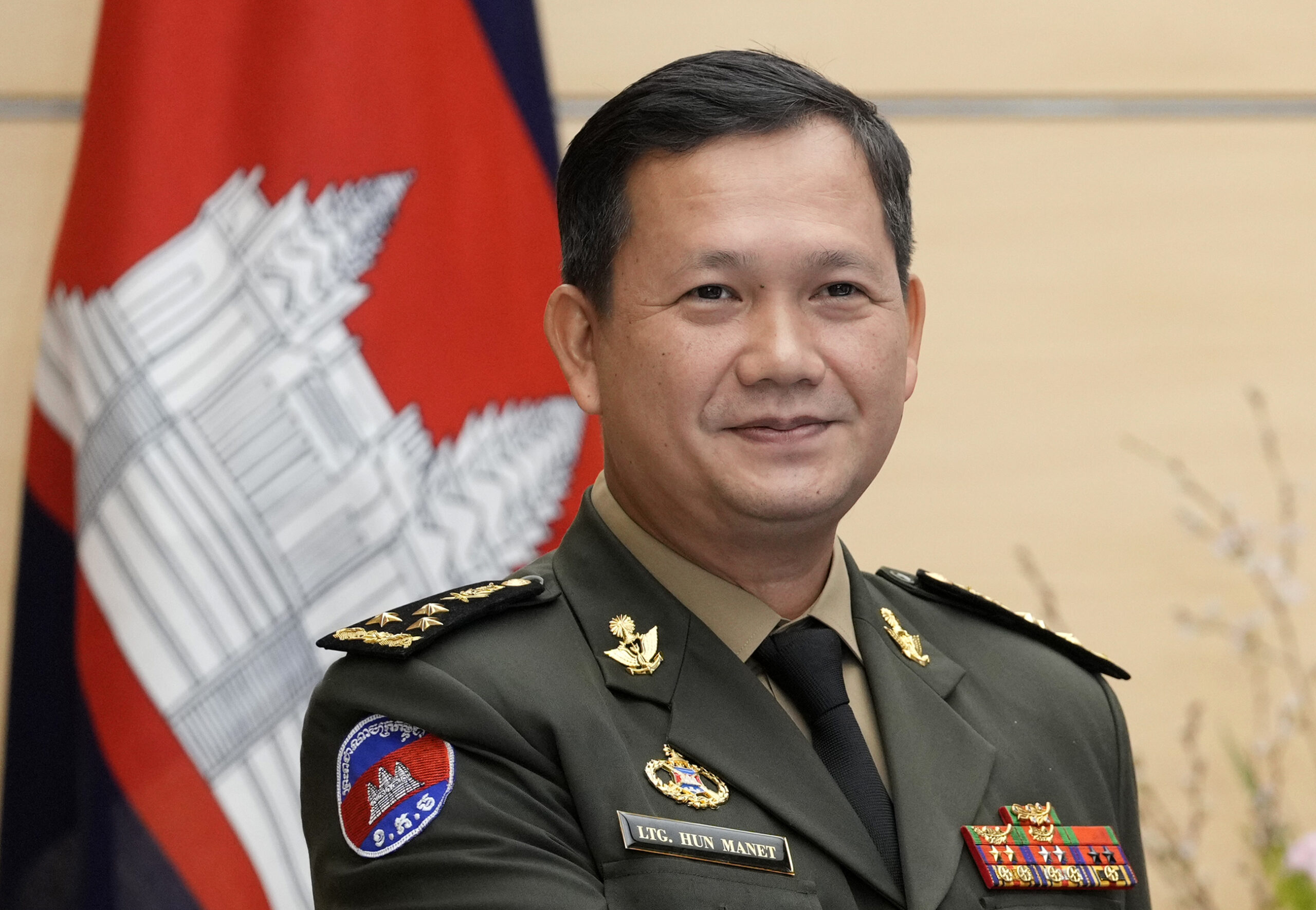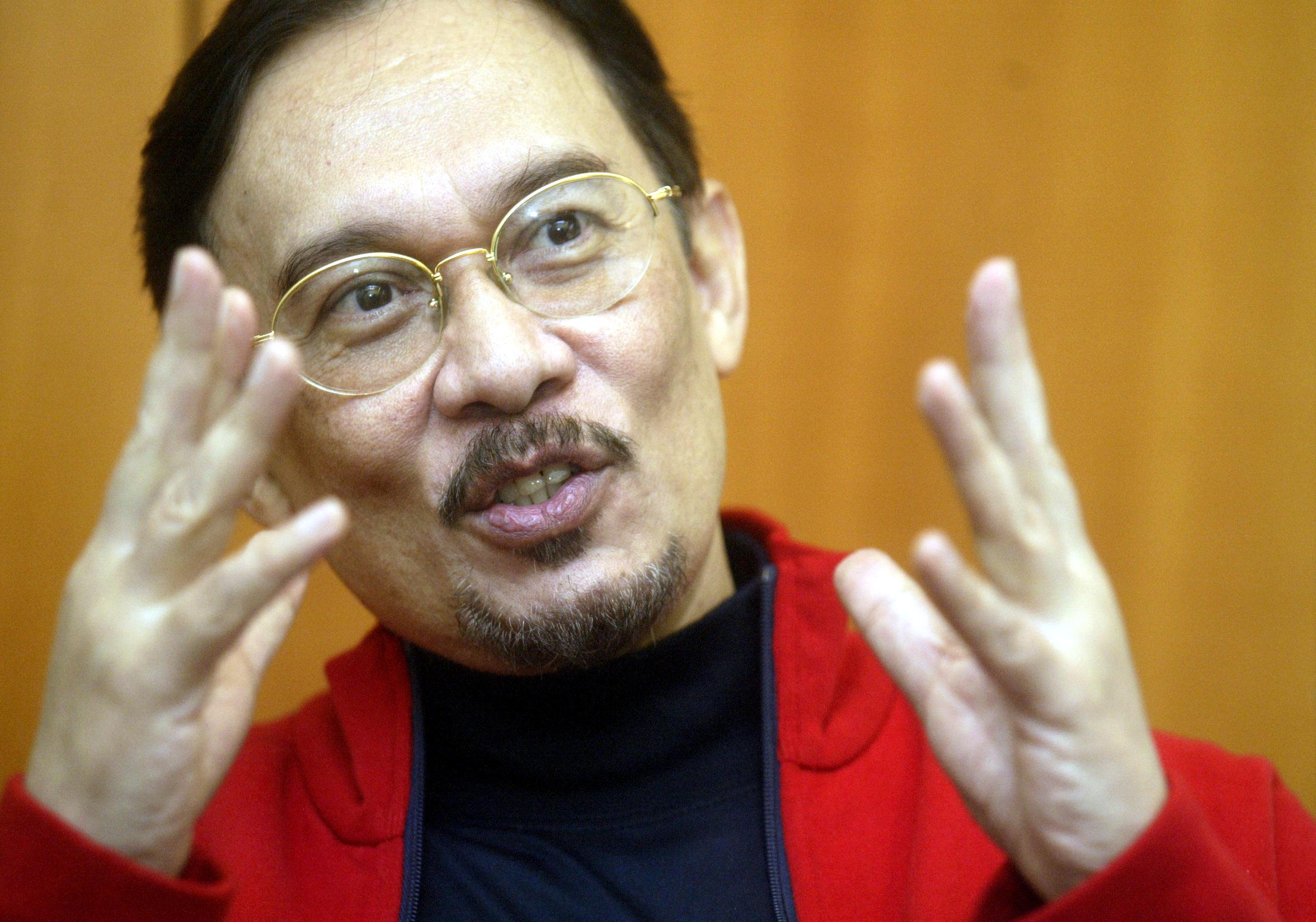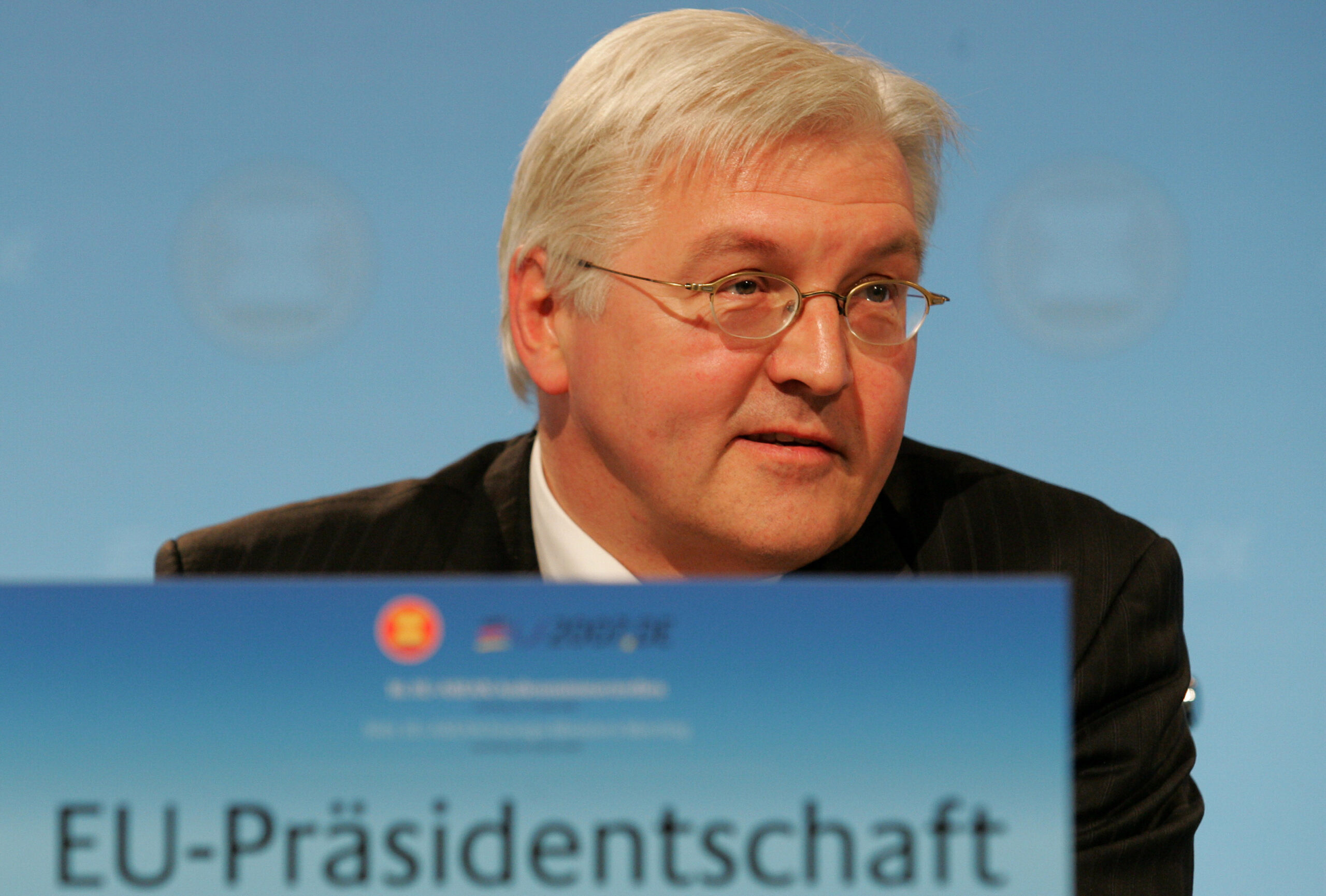German Federal President Frank Walter Steinmeier’s visit to Cambodia and Malaysia this week could not be more timely.
Germany’s Ampel (or ‘Trafficlight’) coalition government led by his fellow Chancellor Olaf Scholz of the Sozialdemokratische Partei Deutschlands (SPD) has been on the forefront of the unified Western alliance to back Ukraine’s resistance against Russian acts of aggression. Steinmeier’s visit takes place just on the eve of the first anniversary of the invasion later this month.
The year-long invasion has prompted Germany and the entire E.U. into what Chancellor Scholz dubbed the ‘Zeitenwende’ era, from the German word for “turning point” or change of an era. This will mean a dramatic reassessment of Berlin and Brussels’ economic, defence and strategic approach to the outside world, including Southeast Asia.
Germany needs Southeast Asia as one of the leeways out of its economic reliance on China with concerns that failures to diversify beyond China would leave political and strategic implication with the lessons learnt from the case of its pre-war reliance on Russian energy supplies. This partnership is a way to shore up rules-based international orders, multilateralism, and fight against climate changes – ideas at the heart of German foreign policy.

Cambodia
This is the first highest level of official visit by a German leader to Cambodia, which had close ties with the former East Germany before the Wall came down.
During his time in Cambodia between 13-15 February, “the President will hold talks with the political leadership and representatives of civil society, among others”, according to Steinmeier’s office.
The tour will also include German-assisted demining and archaeological restoration projects in Siem Reap and a visit to memorials for the victims of the communist Khmer Rouge’s crimes.
It’s unclear with whom the German Social-Democratic head of state will meet in Phnom Penh. Cambodian King Norodom Sihamoni, who paid a rare state visit to Germany in 2006, just left for his medical trip with the Queen Mother to Beijing on the eve of Steinmeier’s visit. Prime Minister Hun Sen, who in the past five years has engineered a one-party rule by neutralising dissent, will be on his way back from his own official visit to Laos until 14 February. The fact that “representatives of civil society” is on the list indicates and reflects German priorities in Cambodia, where Berlin actively assists decentralisation efforts, social protections and human rights projects.
Since the end of the Cold War, Phnom Penh’s relations with a reunified Berlin have substantially improved. German official development assistance as well as engagements via political foundations have contributed to Cambodia’s economic growth and human resources developments in either political, legal, and environmental spheres.
Steinmeier will land in Phnom Penh at a critical political juncture. A long-delayed treason verdict against opposition leader Kem Sokha will be delivered in March. After nearly 40 years in office, Hun Sen is propping his son, Army Chief Lt. Gen Hun Manet, as the sole candidate and protegé to succeed him at the Peace Palace. The only credible opposition, the Candlelight Party, which collected a total of 1.6 million popular votes in recent local polls, is facing immense judicial and political pressures ahead of the parliamentary elections in July. The Voice of Democracy, one of the few remaining independent newsrooms left in Phnom Penh, has been shut down on Mr Hun Sen’s order over its reporting of Lt Gen Manet’s alleged roles in Cambodia’s assistance to earthquake relief in Turkey, in which the army chief said he was not involved.
The German president is expected to both raise Berlin’s concerns for democratic backsliding and praise for Phnom Penh’s surprising support for Ukraine at the same time.

Rerouting from Vietnam
It is noteworthy that Cambodia was put on Steinmeier’s itinerary only after his planned trip to Vietnam was cancelled soon after a political shakeup in Hanoi. Steinmeier’s counterpart Nguyen Xuan Phuc resigned in January amidst the ouster of his former deputies due to corruption scandals related to the Communist Party-ruled state’s fights against Covid-19 pandemic
Phuc had engaged with Steinmeier on multiple occasions. The two met during Steinmeir’s 2016 Hanoi visit when the former was the German foreign minister and the latter had just been appointed prime minister of Vietnam. Phuc was later hosted at the Schloss Bellevue – the seat of German presidency – by Steinmeier a year later shortly before a major diplomatic incident broke out over the alleged kidnapping of Vietnamese businessman Trinh Xuan Thanh, who was applying for German asylum while wanted on corruption charges back home.
While Vice President Vo Thi Xuan Anh takes the helm as Vietnam’s acting state president, the official position will remain vacant until at least May when the one-party parliament reconvenes. One of the key potential candidates to succeed Phuc is Public Security Minister To Lam. Lam’s name was implicated by German prosecutors and judges in the 2017 extraction of Thanh from Berlin’s central political neighbourhood Tiergarten. Vietnam maintained that Thanh, who received a life sentence in 2018, returned “voluntarily”.
No official explanation has yet been given on the reason behind the cancellation of Steinmeir’s Vietnam trip, nor which side instigated it. But Steinmeier’s no-show in Hanoi may not substantially harm German-Vietnamese relations, which was reaffirmed by Chancellor Scholz’s visit three months earlier.
Malaysia

In Malaysia, Steinmeier will meet King Abdullah Shah and newly-elected Prime Minister Anwar Ibrahim. The German president will make three stops: in Malaysia’s Penang, the capital Kuala Lumpur and the eastern state of Sarawak.
The tours include excursions to the facilities of the German-owned semiconductor producer Infineon and medical industry B. Braun in Penang. With German businesspeople in his entourages, these visits will signal the German attempt to diversify and ease reliance on any single actor in East Asia – namely China. With lessons learnt from the case of its previous overdependence on Russian energy supplies, Germany now wants to unpack its heavy reliance on Chinese production hubs and markets.
On the political front in Kuala Lumpur, Malaysia has been a success story – for now – on democratisation in a region surrounded by authoritarian rise. Malaysia’s electoral transition from the long-ruling United Malays National Organisation coalition since 2018 has been peaceful. Key institutions including the judiciary and the military remain bureaucratically functional to serve governments headed by different parties and prime ministers without disruption and undemocratic interventions.
In Sarawak, however, the focus on biodiversity protections will send a message that could potentially touch on one of Europe’s most sensitive issues with Malaysia and Indonesia – the world’s top two palm oil-producing countries.
Palm oil plantations have often been alleged of expanding at the expense of rainforests. The E.U.’s claims of driving toward renewable energy and anti-deforestation climate actions have triggered growing curbs on palm oil importation into the Union, drawing outrage from both Malaysia and Indonesia. Still, there have been attempts from Germany recently to cooperate on sustainability in the palm oil industry in Malaysia, though it remains to be seen how those efforts will come together.
Steinmeier’s visit to the region – less than three months after Chancellor Scholz’s own visit – highlights the strategic importance of Southeast Asia for German national security and interests.
Engaging economically and militarily with Southeast Asian partners and supporting democratic actors in the regions should be a manageable approach for Berlin. Southeast Asia is a potential alternative to China if Germany is to relax its dependence on Chinese markets and production hubs. But for that to happen, the engagement and involvements from Germany have to be expanded and materialised.
Chhengpor Aun is a graduate student majoring in international affairs and security at the Hertie School in Berlin. He worked for the Voice of America as a journalist and editor until 2022, covering Cambodian politics, Southeast Asian geopolitics, and US-China competitions in Asia Pacific.


